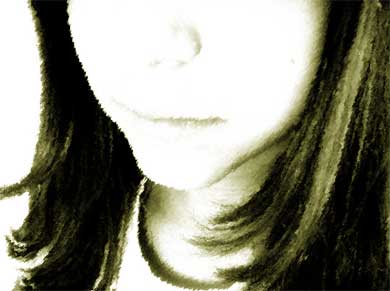The adolescent behavioral health industry has exploded in recent years with new wilderness programs, alcohol and drug rehabilitation programs, and therapeutic schools and programs popping up, it seems, almost on a weekly basis. As this industry's growth has captured more of the public's attention, allegations of abuse and mismanagement have appeared with increasing frequency in the media. This kind of scrutiny is important and serves as a quality-control mechanism for the behavioral-health industry. But these reports can also give the false impression that the industry is rife with abuses and mismanagement, making the prospect of looking for a program confusing and scary for parents.
In my 20 years in both traditional education and adolescent behavioral healthcare, I have visited, consulted with, and worked for dozens of schools and programs. The vast majority of these programs do high-quality, ethically sound therapeutic work and take excellent care of their young clients. With the advent and evolution of professional associations such as the National Association of Therapeutic Schools and Programs (NATSAP), as well as increased public scrutiny and consumer sophistication, overall quality at these programs is on the rise, not the decline. Nonetheless, as with any industry-especially those with implications for the health and welfare of young people-consumers bear a high responsibility for evaluating their options with great care.
If your are considering a treatment program for an adolescent who is struggling with emotional and/or behavioral issues such as depression, anxiety, anger, drug and alcohol involvement, self-harm, etc. the following tips may help you make an appropriate selection.
· Hire an Educational Consultant. Educational consultants are placement professionals, typically with educational or therapeutic credentials, whose job is to match students with appropriate schools or programs. To find an educational consultant in your area, talk to your family therapist, look in your yellow pages, or visit the Independent Educational Consultant Association webpage at www.ieca.com http://www.ieca.com.
· Visit Prospective Programs. Sometimes family crises escalate so quickly that visiting multiple programs prior to enrollment can be quite difficult. If at all possible, however, visit more than one program so that you can get a comparative sense of how different programs operate. Meet as many people as you can-the director, therapists, teachers, line or dorm staff, cooks, maintenance staff, and definitely some students. Is the staff open, relaxed and warm? Visit dorm rooms and tour the entire campus. Is the environment clean and well maintained? How's the food? Are the dorms tidy but comfortable.
· Understand the Student Profile: Therapeutic schools and programs should provide you with a written student profile. Before you describe your child to the program, have them send you this written profile. See if the school staff is consistent in their description both of students they accept and students they do not accept; then compare this to your understanding of your own child.
· References. Insist on talking to the parents of current and past students, unaffiliated professionals who have worked with the program (e.g. therapists, other programs), graduates of the program, and, if possible, neighbors of the program. Most quality schools have a list of volunteers for this. Write down a list of questions to cover so that the information you gather for each program and from each reference is consistent.
· Accreditations. Accreditation is generally a voluntary process whereby an outside organization evaluates a program's quality according to baseline standards. Accreditation functions as a kind of good housekeeping stamp of approval. Some accreditations evaluate overall program quality and some evaluate a specific component, for instance academics or therapeutics. Ask for a photocopy of the school's most recent accreditation certificate(s) and for a copy of their continuous improvement plan, which is generally a part of the accreditation process. Also check the accrediting body's website for their basic requirements and for definitions of their accreditation levels-some accreditations are full and some are partial with stipulations.
· Licensure. Each state has its own requirements regarding licensure of residential treatment programs. Ask for copies of the program's most recent license(s) to operate, and check with the state regarding their requirements for licensure and for any recorded licensure violations.
· Staff Credentials. Ask for a list of the professional credentials of the program staff and make sure that the credentials listed represent the appropriate training for what your child will need. Are the therapists master's level and/or licensed? Is there a qualified pediatric psychiatrist involved in medication management? If your child is learning disabled, does the teaching staff include a certified LD specialist?
· Least Restrictive. It is advisable to look for the least restrictive environment that your child can safely and successfully handle (this should be determined in consultation with your family therapist, physician, and/or educational consultant). Residential options vary greatly in degree of restrictiveness and it is important to understand this variation and the reasons for it before selecting a program. There are now non-residential treatment options such as therapeutic day schools, so-called “wraparound” programs, and at-home mentoring and parent-coaching programs. These non-residential options represent the least restrictive end of the spectrum. Such options, while not appropriate for all adolescents, have the advantage of allowing the adolescent to practice new skills and behaviors in the ideal context of home and family. They can be particularly effective for prevention and aftercare.
Will Laughlin, MA,, M.Ed., has been a teacher, professor, and program director in both traditional and special needs education for the past twenty years. He is currently the director of business development for Vive! Inc. a therapeutic, action-oriented program that works with troubled youth and at-risk teens and their families in the home environment. The program has been particularly effective in continuing the progress gained in residential treatment programs for the transition home.

